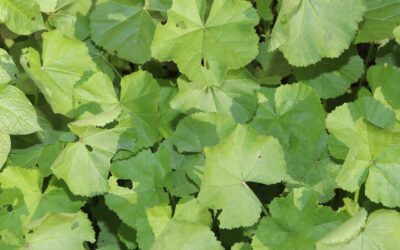Mallow weed is a common problem for commercial facility and property managers, quickly taking over landscapes if not properly controlled. These pesky weeds can be identified by their round, fuzzy leaves and small pink or white flowers. In this ultimate guide, we'll...
Recent Posts
The Landscaper’s Guide To Plant Growth Regulators
Landscapers often struggle with controlling plant sizes and health. Plant Growth Regulators (PGRs) are organic compounds that modify plant growth. This article will guide you in using PGRs to solve common landscaping challenges. Read on for a landscaper's guide to...
How Lawn Pest Control Enhances Overall Landscape Health
According to recent research by the University of Princeton, lawns account for over 40 million acres of American land today. Maintaining a lush, green space is more than just a matter of aesthetics; it's about creating a healthy, sustainable outdoor environment. One...
Agronomists and horticulturists are both essential in the commercial landscaping industry, but their specific areas of focus and expertise differ. Understanding these distinctions is important for commercial property managers and facility managers.
This article will define agronomists and horticulturists, discuss their services and qualifications, and differentiates them.
Defining an Agronomist vs Horticulturist
An agronomist is a professional that specializes in crop production and soil management. They work with crops and plants to improve yields, manage pests and diseases and improve soil health.
Agronomists play a critical role in providing commercial landscaping services by conducting soil analysis, crop planning, and pest management. They hold a degree in Agronomy or a related field and certifications from professional organizations, such as the American Society of Agronomy.
On the other hand, a horticulturist specializes in plant cultivation, including fruits, vegetables, flowers, and ornamentals. They work with many plants, from small bedding plants to large trees, to improve growth, health, and beauty. Horticulturists play a key role in providing commercial property management, such as plant selection, installation, and maintenance.
They also provide advice on irrigation, fertilization, and pruning. Horticulturists hold a degree in horticulture or a related field and certifications from professional organizations, such as the American Society for Horticultural Science.
Differences between Agronomists and Horticulturists
While agronomists and horticulturists work in commercial landscaping, agronomists focus on the science of crop production and soil management, whereas horticulturists focus on the cultivation of plants.
Agronomists typically provide services such as soil analysis, crop planning, and pest management. They work to improve crop yields and soil health and may also be involved in irrigation and water management. On the other hand, horticulturists focus on selecting, installing, and maintaining plants. They may advise on irrigation, fertilization, and pruning to ensure the plants are healthy and thrive.
Their qualifications differ too. Agronomists typically hold a degree in agronomy or related fields, while horticulturists hold a degree in horticulture or related fields. Both agronomists and horticulturists may hold certifications from professional organizations, such as the American Society of Agronomy or the American Society for Horticultural Science.
For commercial property managers and facility managers, deciding whether to hire an agronomist or a horticulturist will depend on the specific needs of their property or facility. Agronomists may be the better option for properties that focus on crop production, while horticulturists may be more suitable for properties that focus on plant cultivation and maintenance.
Commercial property and facility managers can find agronomists or horticulturists by researching professionals with a degree in the related field and certifications from relevant professional organizations. They can also ask for recommendations from other property managers or landscaping companies and check out online reviews and portfolios to get an idea of the agronomist’s or horticulturist’s experience and expertise.
Choosing between Agronomists and Horticulturists for your Commercial Property
Understanding the differences between an agronomist vs horticulturist is important for commercial property managers. Both are essential in the commercial landscaping industry.
Consider partnering with Sunrise Landscape, a 40-year experienced Tampa-based landscaping services company, for the best care for your properties and environment. Contact us to learn more.
Contact Us
"*" indicates required fields
Recent Posts
Mallow Weed Control: The Ultimate Guide
Mallow weed is a common problem for commercial facility and property managers, quickly taking over landscapes if not properly controlled. These pesky weeds can be identified by their round, fuzzy leaves and small pink or white flowers. In this ultimate guide, we'll...
The Landscaper’s Guide To Plant Growth Regulators
Landscapers often struggle with controlling plant sizes and health. Plant Growth Regulators (PGRs) are organic compounds that modify plant growth. This article will guide you in using PGRs to solve common landscaping challenges. Read on for a landscaper's guide to...



